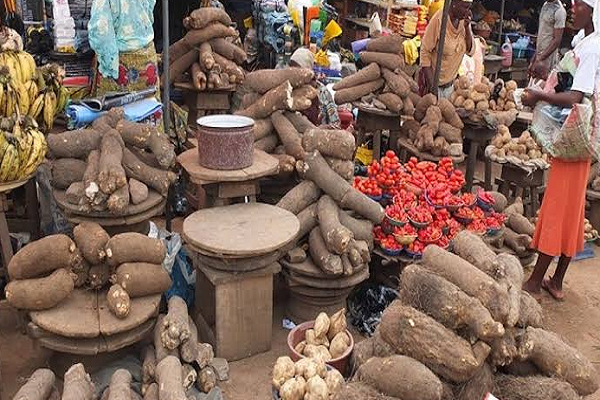Rising prices of food, fuel, gas and other commodities have pushed inflation to 26.72 per cent, the National Bureau of Statistics (NBS) yesterday said in its Report.
The NBS Reported that the Consumer Price Index (CPI), otherwise known as inflation rate, rose for the ninth consecutive month from 25.80 per cent in August to 26.72 per cent last month.
The increase in average prices of basic consumer costs was primarily due to the lingering effects of foreign exchange (forex) crisis, removal of subsidy on petrol, related increase in prices of gas and diesel, low agricultural production due partly to insecurity and cross-national trade inefficiencies.
A Data provided by the International Monetary Fund (IMF) showed that rising inflation is a global phenomenon.
The countries with highest inflation rate, according to IMF’s latest World Economic Outlook for this month (October), are: Venezuela (360 per cent); Zimbabwe (314.5 per cent); Sudan (256.2 per cent); Argentina (121.7 per cent); Turkiye (51.2 per cent); Suriname (53.3 per cent); Ghana (42.2 per cent); Haiti (43.6 per cent); Sierra Leone (42.9 per cent); Pakistan (29.2 per cent); Malawi (27.7 per cent); Ethiopia (29.1 per cent) and Lao PDR (28.1 per cent).
The Fund indicated that while global inflation is forecast to decline steadily, from 8.7 per cent last year to 6.9 per cent this year and 5.8 per cent in 2024, inflation is not expected to return to target until 2025 in most cases.
The IMF noted: “Monetary policy actions and frameworks are key at the current juncture to keep inflation expectations anchored”, underscoring the “complementary role of monetary policy frameworks, including communication strategies, in helping achieve disinflation at a lower cost to output through managing agents’ inflation expectations.”
The annual meetings of the World Bank and the International Monetary Fund (IMF) ended at the weekend with commitments to mobilise global focus on reduction of spiraling inflation and debt burden affecting most developing countries.
A meeting of the International Monetary and Financial Committee (IMFC) of the IMF, which was attended by Nigeria’s Minister of Finance and Coordinating Minister for the Economy, Mr. Wale Edun, alongside IMF Managing Director, Kristalina Georgieva and others, outlined the priorities to include durably reducing inflation and safeguarding financial stability.
It also committed to ensuring fiscal sustainability while protecting the most vulnerable, and boost inclusive and sustainable long-term growth.
The breakdown of the NBS report showed broad price pressures, especially food inflation, which rose by 130 basis points to 30.64 per cent and core inflation- all items less farm produce and energy, which jumped by 69 basis points to 21.84 per cent. The non-food basket rose by 56 basis points to 22.10 per cent.
Most analysts said they expected Nigeria’s inflationary trend to remain pressured, as government rolls out measures to curtail food prices and boost economic activities.
Analysts at Arthur Steven Asset Management stated that dicey decision lies ahead for the Central Bank of Nigeria (CBN), which is struggling with high inflation and interest rate.
He said: “We have maintained that the key drags to inflation remain largely on the supply side. Illiquidity of foreign exchange, dependency on imported raw materials, continued currency depreciation and insecurity in the food producing region.”
Others at CardinalStone noted that although the recent action of the CBN to lift the forex ban on 43 items is directed at reducing parallel market pressure, the positive impact on prices is unlikely in the short term until the CBN intensifies supply.
SCM Capital stated that it expected “prices of commodities to remain elevated, though at a decreasing rate, as current FGN reforms on forex and subsidy removal continue to influence the general price level.
“The effect of the state of emergency on food and the subsequent rollout of grains coupled with the harvest season will abate the pain in the near term.”

